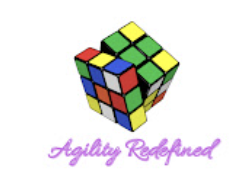Troika Consulting is a Liberating Structure that provides a structured format for seeking and sharing insights and solutions to personal or professional challenges. It harnesses the collective wisdom of a small group to support the individual seeking advice or guidance. Here’s an elaboration on Troika Consulting, including how to facilitate it, when to use it, its advantages, and expected outcomes.
How to Facilitate Troika Consulting:
- Formation: Organize participants into small groups of three. In each Troika, one person will be the “consultant” seeking advice, while the other two will be the “consultants” providing insights.
- Round 1 (Consultant’s Presentation): The first consultant shares a personal or professional challenge, issue, or question with the group. They have a set amount of time to present their situation without interruption, typically around 2-3 minutes.
- Round 2 (Consultants’ Questions): The other two participants in the Troika, acting as consultants, ask clarifying questions to better understand the situation presented by the consultant. They should not provide solutions or advice at this stage.
- Round 3 (Consultants’ Insights): The consultants provide their insights, suggestions, or potential solutions to the consultant’s challenge. Each consultant has a set time to share their perspectives, typically around 2-3 minutes.
- Reflection: The consultant reflects on the insights received and how they might apply them to their situation. There is no discussion or further questions during this phase.
- Rotation: The roles of consultant and consultants rotate, with each participant taking a turn in each role. This ensures that all participants have the opportunity to seek advice and offer insights.
When to Facilitate Troika Consulting: Troika Consulting is a versatile Liberating Structure that can be employed in various scenarios, including:
- Professional Development: It is useful for individuals seeking guidance on professional challenges, career decisions, or work-related problems.
- Team Building: Troika Consulting can be used to build trust and enhance communication among team members by allowing them to share and address personal challenges or concerns.
- Problem-Solving: It is effective for tackling complex problems by tapping into the collective wisdom of the group.
- Idea Generation: Troika Consulting can stimulate idea generation by encouraging participants to explore and expand on their thoughts.
Advantages:
- Diverse Insights: Troika Consulting brings multiple perspectives to a challenge, providing the consultant with a range of solutions to consider.
- Active Participation: Participants are actively engaged in providing and receiving advice, promoting deep reflection and learning.
- Efficiency: It is a time-efficient way to address multiple challenges in a short amount of time, making it suitable for workshops or team meetings.
- Trust Building: Sharing personal challenges and providing insights fosters trust and stronger interpersonal relationships within the group.
Expected Outcomes: The outcomes of a Troika Consulting session may include:
- Multiple Solutions: The consultant receives a variety of potential solutions and insights for addressing their challenge.
- Enhanced Problem Solving: The group collectively contributes to improved problem-solving and decision-making.
- Empowerment: The consultant gains a sense of empowerment and ownership over their situation with the support of the group.
- Improved Communication: Team members may better understand each other’s perspectives and experiences, leading to improved communication and collaboration.
- Trust and Engagement: Troika Consulting can strengthen trust and engagement among participants, contributing to a positive group dynamic.
In summary, Troika Consulting is a valuable Liberating Structure that encourages the exchange of insights and solutions in a structured format. It enhances problem-solving, fosters trust, and promotes active participation, making it a versatile tool for addressing personal or professional challenges in various settings.
